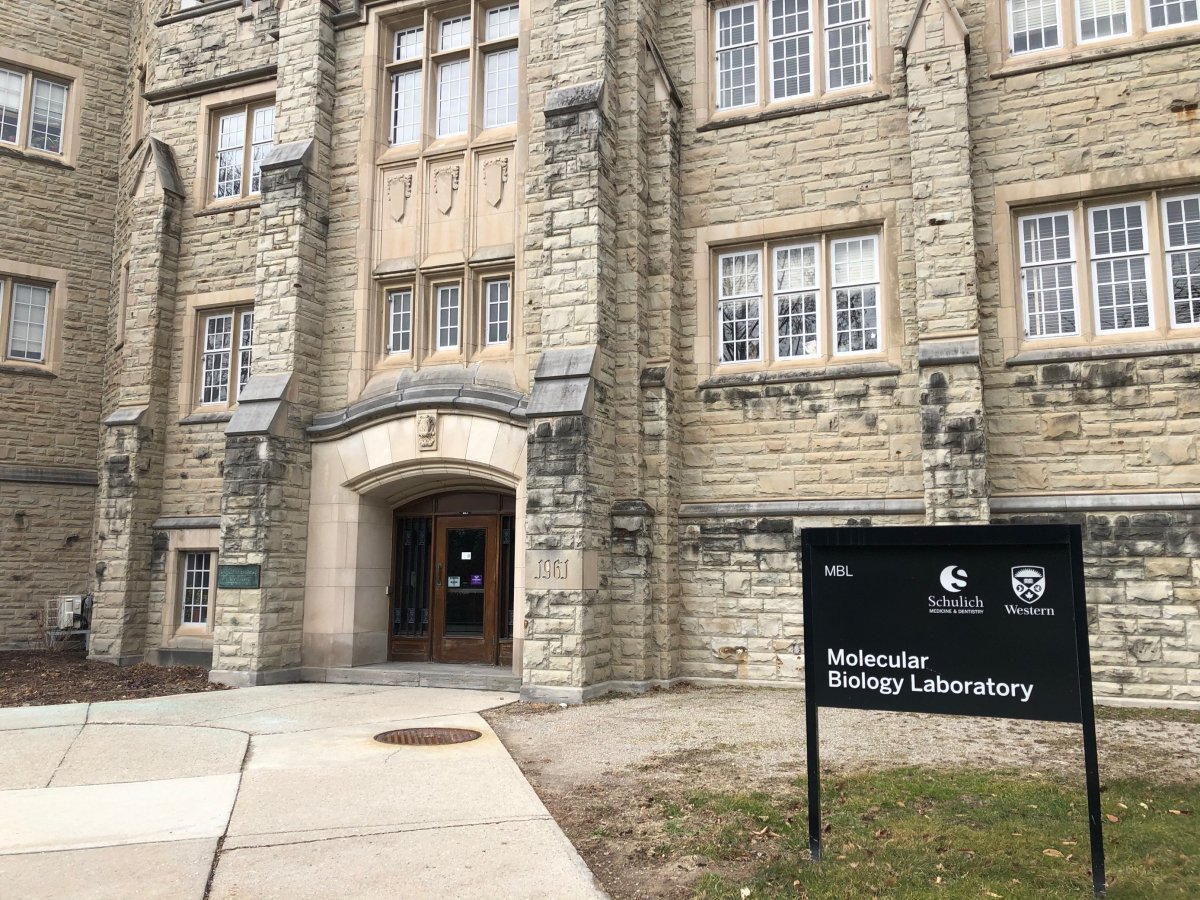Experts in brain imaging, cognitive neurology, infectious disease and other fields based in London, Ont., are working together to use an ultra-high-field MRI scanner to try to find out whether “microbleeds” play a role in COVID-19’s impacts on the brain.

London Health Sciences Centre‘s Urgent COVID-19 Care Clinic (LUC3) infectious diseases physician Dr. Megan Devlin says she’s seen a range of symptoms — memory loss, confusion, severe headaches, loss of smell, and even stroke.
Scientists have not yet been able to determine what’s happening in the brain to result lead to these symptoms, but a multi-disciplinary team at Western University’s Schulich School of Medicine & Dentistry believes microbleeds, or tiny vessels bleeding in the brain, may play a role.
Some people with COVID-19 develop blood clots and changes in blood vessels, leading the team of more than a dozen scientists and clinicians, including Devlin, to suggest that neurological symptoms may be the result of the virus triggering microbleeds.
The very tiny bleeds are too small to see with typical clinical brain imaging done in hospitals, but the team says Robarts’ Centre for Functional and Metabolic Mapping has an ultra-high-field MRI scanner that is “more than twice as powerful” as a typical MRI and “can scan the brain in extremely high resolution.”
“It was the first one of its kind in Canada. It’s one of only a couple in Canada now,” Robert Bartha, PhD, acting director of Strategy and Scientific Integration at Robarts, told Global News.
“Having this type of equipment here allows us to look at the brain in ways that you just couldn’t do on a lower-powered system like the kind that you find in hospitals.”
Researchers at Robarts have also developed special techniques to use the powerful brain-imaging to observe “even the tiniest of microbleeds.”
“Having this equipment available, plus the knowledge that we have here — the imaging group at the Robarts, the scientists that are here that are developing new techniques on the MRI scanners that we don’t even typically use in a hospital — this is what allows us to sort of see these really subtle changes that are occurring and is the basis for this study,” he added.
The team is hoping to recruit at least 60 patients who’ve experienced neurological symptoms from COVID-19 to undergo cognitive testing and “a full gamut of MRI scans.”
“The study started a few months ago, but we’re still not even halfway through the recruitment,” Bartha told Global News.
“Eventually I’d like to get up to 120 people that are part of the study. We’re at about 30 people now. We’re actively recruiting people, we’re doing all the recruitment through the COVID clinic. And so anyone that is attending that clinic would get asked to to participate in the study.”
He says the team will look for any associations between the cognitive changes demonstrated and the brain imaging.
Researchers are hoping that if they can understand what’s happening in the brains of people with COVID-19, they can also get a better sense of whether COVID-19 will have an impact on developing other diseases later in life, like Alzheimer’s or dementia.










Comments